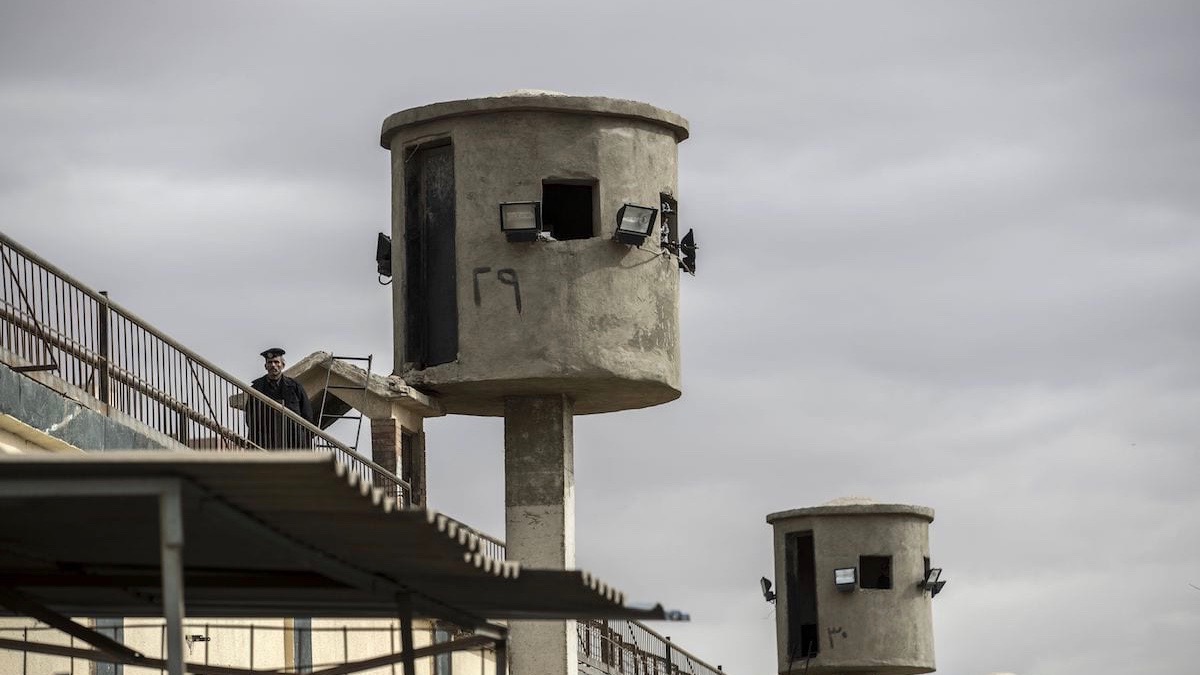Egyptian human rights organizations released a statement denouncing the opaque process used by the Egyptian government to release political prisoners in the country. They also offered an alternative release plan which includes a number of changes to make the process more fair, transparent, equitable and effective. The eight human rights groups include the El Nadeem Centre Against Violence and Torture, Egyptian Front for Human Rights, Cairo Institute for Human Rights Studies (CIHRS), Egyptian Initiative for Personal Rights (EIPR), and Association for Freedom of Thought and Expression (AFTE), among others.
The groups criticized various elements of the pardoning plan, saying that it has several limitations and is not inclusive enough as it only applies to a certain category of political prisoners. They alleged that the plan leaves out many others who should also have their cases considered for release. The Egyptian government had recently announced the reactivation of the Presidential Pardon Committee during the holy Islamic month of Ramadan. In addition to reconstituting the committee, the government last week also announced the creation of an online form to receive applications for the release of prisoners through presidential pardons. The groups noted that the government’s plan applies only to “the release of young people detained in pending cases, with no judicial rulings having been issued against them” and said that the committee was only focusing on “imprisoned youth” and people imprisoned for unpaid debts.
In their statement, the groups claim that “this proposal considers that any approach to addressing the file of political prisoners will not be fair, equitable and effective unless it includes all those held in pretrial detention as well as those convicted on political charges, whether they are ‘youth’, children, minors, elderly, or those with health and humanitarian conditions, and all those currently deprived of their liberty for political reasons or charges.”
It continues, “The criterion of not having committed violent crimes constitutes an appropriate basis for moving towards resolving the situation of political prisoners. But this criterion must be very precisely defined to ensure the inclusion of the thousands of prisoners of conscience who have been arrested routinely and without evidence under vague charges such as ‘belonging to an illegal group’ or ‘assisting a banned group in achieving its goals’, and other broad charges, for which the Public Prosecution has no evidence, not even specifying the name or identity of that alleged group.”
One of the groups, EIPR, in a separate statement further said that “this proposal, submitted by a group of independent Egyptian human rights organizations, aims to avoid past mistakes in dealing with this matter or persistence of an approach that has proven its failure in clearing the positions of thousands of political prisoners since the establishment of the presidential pardon committee in 2016.”
The statement expressed concern over the continuing repression and arrests of human rights activists, opposition political figures, journalists and others, even as the government pardoned and released more than 3,000 prisoners, including a number of political prisoners, during the month of Ramadan. It said, “there would be no real resolution of the crisis of political prisoners in Egypt if the decisions to arrest citizens on political charges continue as is the case now. Rather this would maintain the ‘revolving door’ policy by which security agencies throw new detainees into prisoners at the same time while releasing limited numbers of others.”
The groups’ statement coincided with a statement released by 64 prominent Egyptians including human rights activists like Ramy Shaath, Gamal Eid, Mahienour El-Massry and Bahey el-Din Hassan, journalists Solafa Magdy, Adel Sabry and Hossam el-Hamalawy, and actors Khaled Abol Naga and Amr Waked. Their statement was released in response to el-Sisi’s announcement of a “national dialogue”. It calls on the government to take action to “build trust” with the opposition instead of releasing a small number of prisoners while continuing to arrest those opposing or criticizing the government.
According to estimates by human rights and prisoners’ rights groups, there are currently at least 65,000 political prisoners being arbitrarily detained by the government in Egypt, out of a total approximate prison population of 120,000. At least 26,000 of the prisoners are being held in pre-trial detention, according to the estimates. Since current Egyptian president Abdel Fattah el-Sisi took power in the country in a military coup in 2013, his regime has embarked on a brutal crackdown against the political opposition as well as human rights and civil liberties in an attempt to maintain a tight grip on power and crush any dissent and criticism of its policies and actions.





